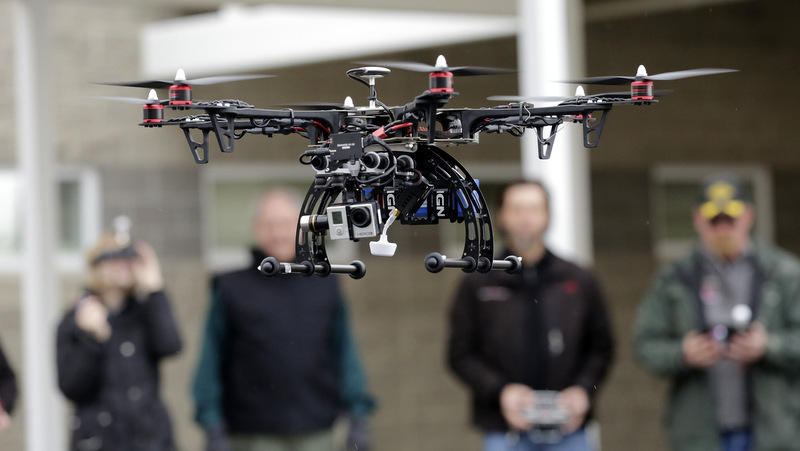
Congressman Ted Yoho (R-Fla.) announced this week that he wrote a letter to Rep. John Carter (R-Texas), chairman of the Appropriations Committee’s Subcommittee on Homeland Security, and the committee’s Ranking Member David Price (D-N.C.), asking that Congress not fund warrantless drone surveillance of American citizens on U.S. soil.
“I want to ensure that no funding for fiscal year 2015 be made available for warrantless drone surveillance of U.S. citizens on U.S. territory,” Yoho explained in a statement. “As drones become more accessible throughout the country, it is our duty as members of Congress to ensure that our constitutional protections remain intact.”
The Department of Homeland Security currently controls the majority of the U.S. government’s domestic drone fleet, and Yoho says he believes it is Congress’ responsibility to ensure that the DHS only uses funds for drone surveillance when a warrant is legally obtained, to ensure that Americans’ Fourth Amendment rights are not violated.
Although DHS Secretary Jeh Johnson has acknowledged the importance of implementing safeguards related to drone use to protect the privacy of all U.S. citizens, he has also expressed an interest in using the arguably invasive technology to aid Border Patrol agents in securing the nation’s borders.
But as U.S. Customs and Border Protection has lent its drone supply to state and local police departments “hundreds of times,” Yoho saw a need to ensure that lawmakers only fund legal drone use.
“The Fourth Amendment protects against unreasonable searches and seizures and requires that warrants be based on probable cause,” Yoho said. “While the framers may not have envisioned an America with drones, the principles and protections laid out in the Constitution still endure today. It is my duty to uphold the Fourth Amendment in order to protect the privacy and liberty of all Americans.”
As drones are seen as a useful tool by some who argue that the lives of American military and law enforcement officers should not be put on the line, calls for an outright ban on the use of drones has led to a contentious debate among both lawmakers and the American public.
Though some states and cities have tried to enact legislation prohibiting the use of drones in order to protect civilians from unlawful searches, city and state airspace rights only extend so far up.
For example, the small town of St. Bonifacius, Minn., passed a drone ban ordinance last year, and was one of the first cities in the U.S. to do so. But since the city only controls airspace up to 400 feet, with all higher altitudes being managed by the federal government, some residents say the ban is more symbolic than anything.
Since the legal and political battle to outrightly ban drones on a federal level seems almost impossible at this point because the technology is used not only on American soil to track down wanted persons such as the Boston Marathon bomber, but in foreign countries such as Yemen to allegedly assassinate those deemed terrorists by U.S. officials, the best way to ensure this new weapon is not misused may be through a cut to funding.

